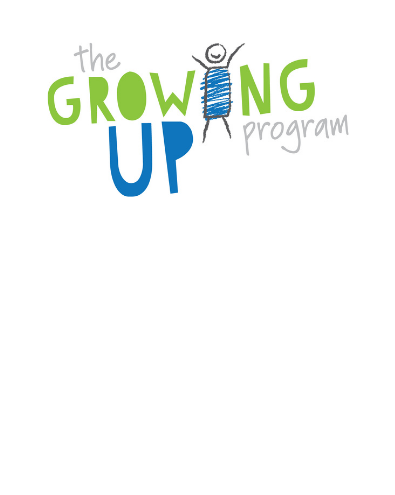The Growing Up Program (GUP)
The Growing Up Program (GUP) is Tasmania’s leading relationships, sexuality and protective behaviours’ program for students from Kindergarten through to year 6.
It is facilitated by an experienced team of Family Planning Tasmania educators, and is age and developmentally appropriate, sequential, and evidence-based.
The program is mapped to the:
- Australian Curriculum
- Early Years learning Framework
- Respectful Relationships Teaching and Learning Package
GUP reflects the latest in sexual and reproductive health research, and aims to maximise learning outcomes, and increase positive communication between parents /carers and their child/children.
Growing Up educators will encourage children to talk to their families and other trusted adults and consider their own/family’s beliefs and values.
Family Planning Tasmania recommends that students be provided with relationships, sexuality and protective behaviours education each year.
Please see below for more detailed information on key focus areas for each year group.
Key GUP Focus areas for Kindergarten to Year 2
- Identity- begin to understand identity, learning to respect and value diversity in self and in others.
- Respectful Language – accurate and respectful language including the correct names for body parts
- Growth and Change – exploring how their body changes from a baby to a child
- Wellbeing – Promotion of physical, social, emotional and mental health and wellbeing.
- Respectful Relationships – developing basic skills to understand their rights and responsibilities.
- Protective Behaviours – correctly naming body parts and identifying those that are private; understanding the difference between public and private places; types of touch; and learning to identify the warning signs their body may display in a situation that is not ok, uncomfortable or unsafe.
- Help Seeking Behaviours – how to seek help when needed.
Key GUP focus areas for Years 3 and 4
- Identity – understanding identity, learning to respect and value diversity in others.
- Respectful Language – including correct name for body parts and functions
- Growth and Change- understanding how their body works and why changes occur as they grow older.
- Puberty – understanding puberty and learning how to manage changes.
- Conception & birth – exploring how babies are made and correcting common myths and misinformation.
- Wellbeing – promotion of physical, social, emotional and mental health and wellbeing.
- Respectful Relationships – developing skills to understand their rights and responsibilities.
- Protective Behaviours – types of touch; online safety; and learning to identify the warning signs their body may display in a situation that is not ok, uncomfortable or unsafe.
- Help Seeking Behaviours – how and when to seek help, including opportunity to analyse and respond to scenario situations where help may need to be sought for self and/or others.
Key GUP focus areas for Year 4/5 combined class
- Identity – understanding their identity, learning to respect and value diversity in others.
- Respectful Language – including correct names for body parts and functions
- Growth, Change & Puberty – exploring the physical, social and emotional changes and influences of puberty, and developing skills and strategies they can use to manage these changes
- Conception & birth – exploring how babies are made and correcting common myths and misinformation.
- Wellbeing – promotion of physical, social, emotional and mental health and wellbeing.
- Respectful Relationships – developing skills to understand their rights and responsibilities.
- Protective Behaviours – types of touch; online safety; and learning to identify the warning signs their body may display in a situation that is not ok, uncomfortable or unsafe.
- Help Seeking Behaviours – how and when to seek help, including opportunity to analyse and respond to scenario situations where help may need to be sought for self and/or others.
Key GUP focus areas for Year 5 and 6
- Identity – students are encouraged to look at their beliefs and values and those of others, and explore what it is that makes people who they are.
- Respecting Diversity – recognition of similarities and differences between people and learning to value and respect diversity.
- Growth, Change & Puberty – exploring the physical, social and emotional changes and influences of puberty in greater depth, and develop and appraise skills and strategies they can use to manage these changes. Investigating the reproductive system.
- Exploring Wellbeing strategies to promote physical, social, emotional and mental health and wellbeing.
- Respectful relationships – exploring the rights and responsibilities of themselves and others and understanding what is ok and not ok in different types of relationships.
- Decision making – exploring the process of decision making, taking into account the choices we make, influences, and the impact these have on ourselves and others. E.g. risk-taking and the law.
- Managing Influence – recognising how media, peers and others in the community, including social media, influence respectful relationships and healthy decision making.
- Protective Behaviours – previous knowledge is reinforced with emphasis placed on recognising the characteristics of a respectful relationship and balance of power within respectful relationships.
- Help Seeking Behaviours – how and when to seek help, online safety, and gives opportunity to analyse and respond to scenario situations where help may need to be sought.
Complete below booking form to request a booking
Please complete the below GUP form and we will be back in touch to discuss your school’s needs and availabilities. We look forward to discussing this with you.
The Growing Up Program Booking Form
Useful Documents
More information about the Growing Up Program is available in the documents below.
GUP Flyer
Feedback from primary school students about the Growing Up Program:
“Thank you for answering all our questions. It’s good to have a safe person to talk to.”
“Thanks so much for talking to us about all the stuff no one else will talk about.”
“I learnt so much, now I know all this (puberty) stuff is normal. I thought there was something wrong with me.”
“You made all that weird stuff fun and interesting.”


